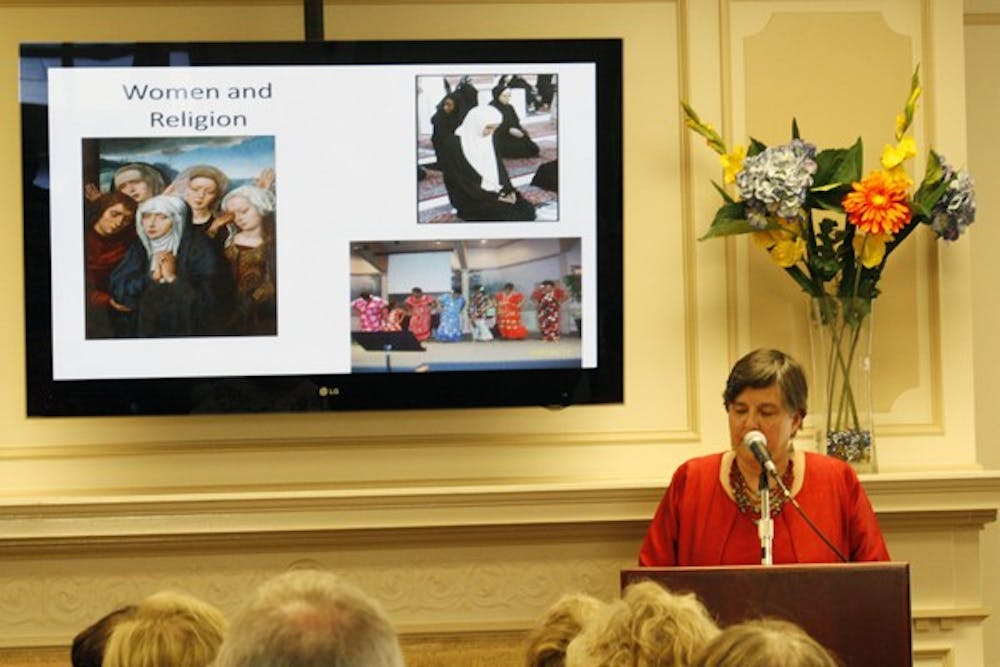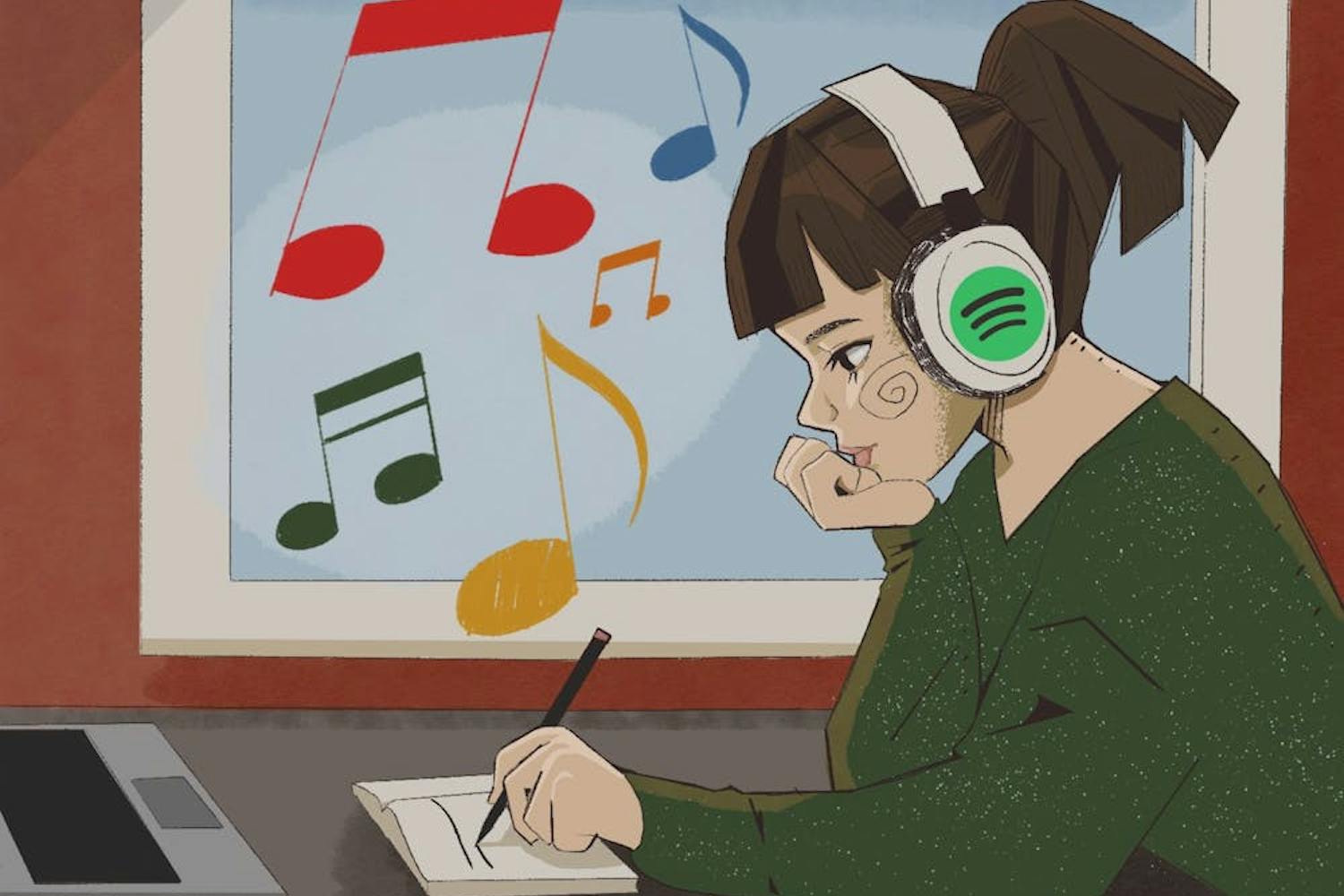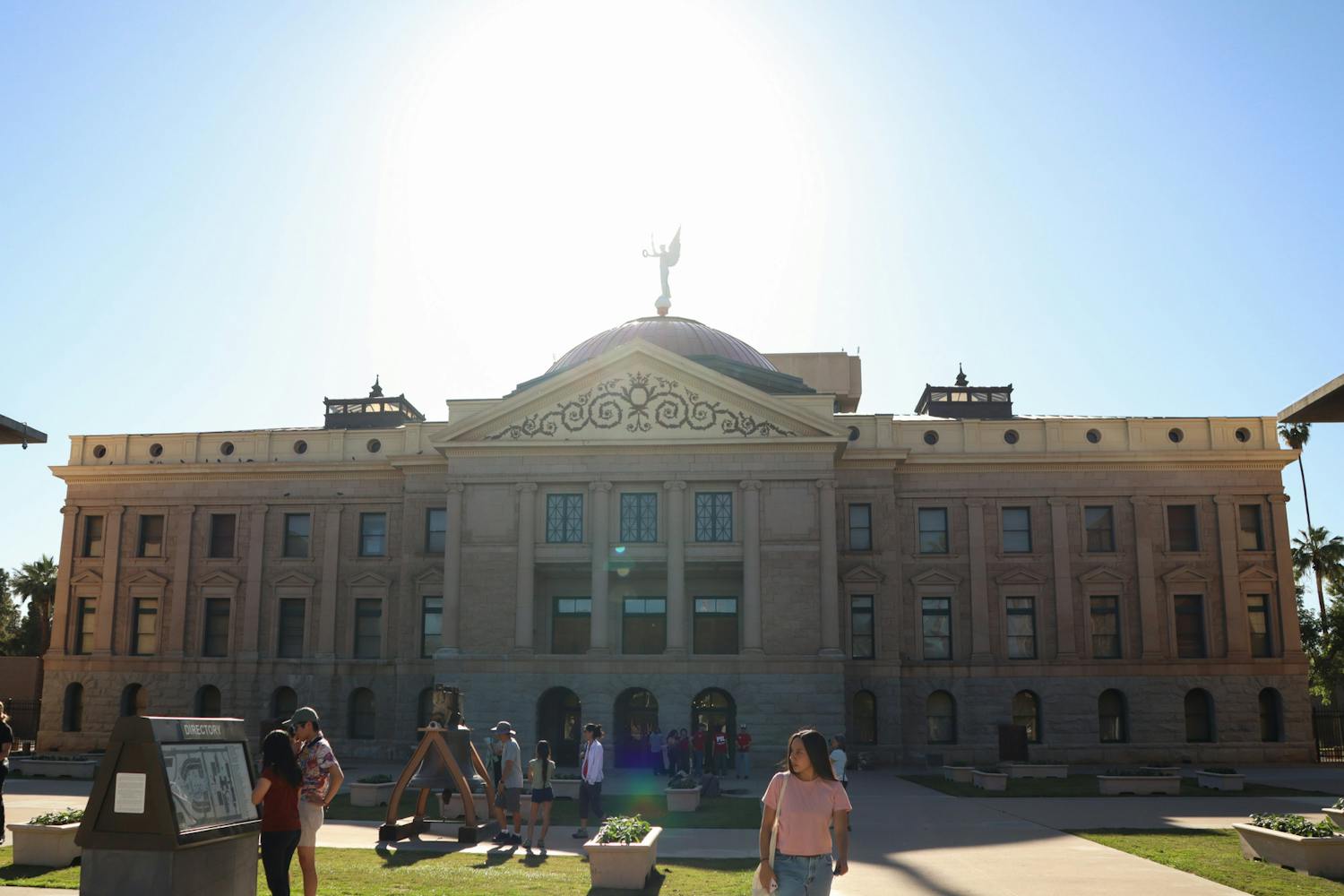 Katherine Marshall speaks to professors and students Monday afternoon in West Hall about women and religion. (Photo by Cameron Tattle)
Katherine Marshall speaks to professors and students Monday afternoon in West Hall about women and religion. (Photo by Cameron Tattle)The interaction between religion and gender is important, complex and fraught, said Georgetown University Professor Katherine Marshall , who spoke at the Tempe campus Monday.
The lecture, called “Taking Women and Religion Seriously: Intersecting Paths,” is part of the College of Liberal Arts and Sciences series on religion and conflict.
Marshall, a published author and a senior advisor at the World Bank, an international institution that provides loans and offers financial and technical assistance to developing countries, began her lecture saying that gender and religion issues are alive and immediate.
Gender equality and its connection to women, however, has not always been on the agenda for employers. Until recently, very few people discussed women in international economic development, she said.
People did not talk about gender, Marshall said, as they would talk about other policies, such as water or energy.
“There was an emotional dimension,” she said. “People felt very strongly about it.”
Today, almost every institution has strategies for the development of women in the workplace. Changes have been made in understanding gender issues and their reality, Marshall said.
Budget and funding resources are very important to achieve a change in the gender composition of institutions where women work, ranging from the public to the private sector, she said.
“There are a lot of remaining challenges, which are always worth remembering,” she said. “What that means, often, is that there is no budget and no leadership.”
Interfaith organizations are growing and working toward gender equality both in religion and in the workplace. However, they are met with skepticism from employers.
“There is a sense that (interfaith organizations) are really about talk,” she said.
Marshall also said that religious organizations often refuse to work with developing organizations, as they view them only as tools of the U.S. to promote multinational companies.
At the same time, Marshall said, developing organizations think of religious organizations as insignificant and anti-women.
These factors contribute to the irony in the way religion and women interact, Marshall said, as there are a lot of thoughts on gender, religion and development, but none that intersect them.
Marshall discussed the creation of the Convention on the Elimination of All Forms of Discrimination Against Women , a treaty adopted by the United Nations General Assembly in 1979, which defined what constitutes as discrimination against women and sets contractual obligations for employers.
The U.S. has not ratified it because there are organizations that advocate for traditional family values and do not want to see changes in gender equality, such as same sex marriage and equal salary, but mainly women’s freedom of reproduction, Marshall said.
“How do you change this? What can we do? And I think supporting heroines, supporting women that are doing remarkable things, whether through prizes or fellowships, is critically important,” she concluded.
Most of the attendees were financial contributors to the Center for the Study of Religion and Conflict, and ASU students.
Psychology senior Alyssa Hernandez attended as part of a women studies class, and found it very interesting, if a little complicated.
“I’m going to minor in women’s studies, so I’m interested in this, and also religion,” she said.
Kinesiology senior Sara Ramirez was also there because of her women’s studies class, but believes she would have attended anyway.
“Definitely religion, violence and gender are things I’m passionate about,” she said. “I consider myself as a very religious person, and I don’t believe God is at peace with this. I ask myself, what can I do?”
Reach the reporter at dpbaltaz@asu.edu Click here to subscribe to the daily State Press newsletter.




